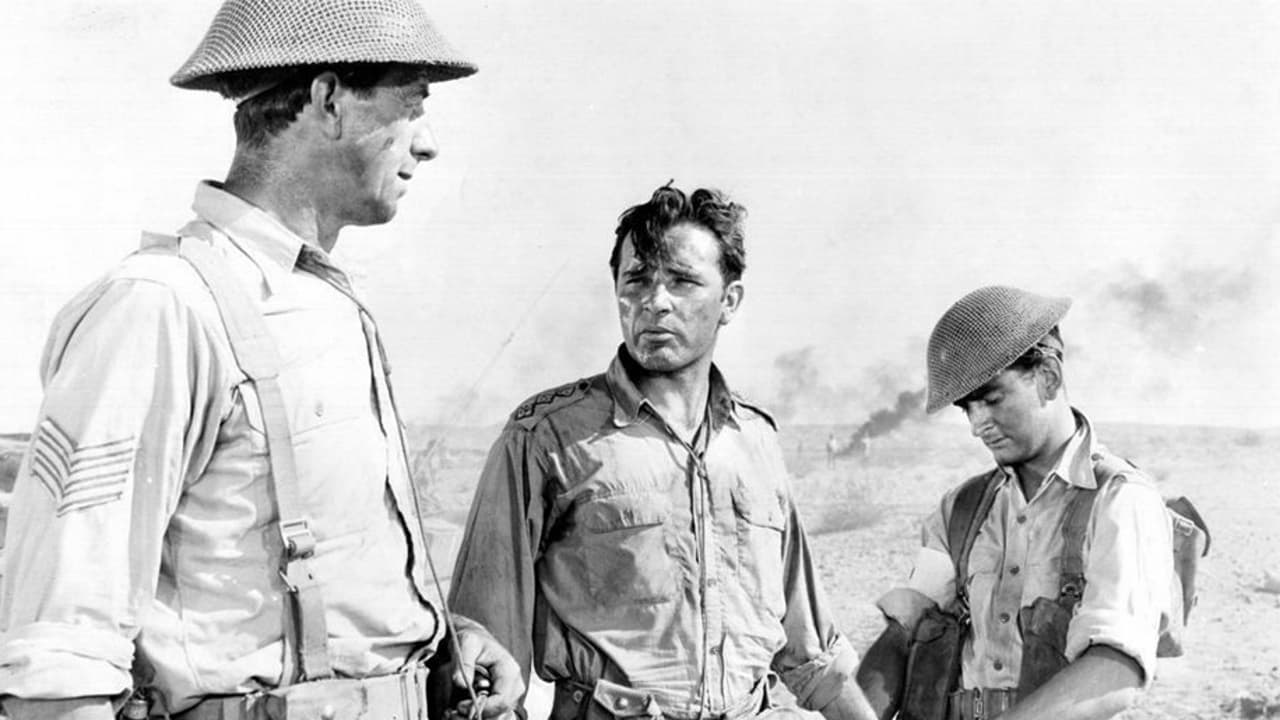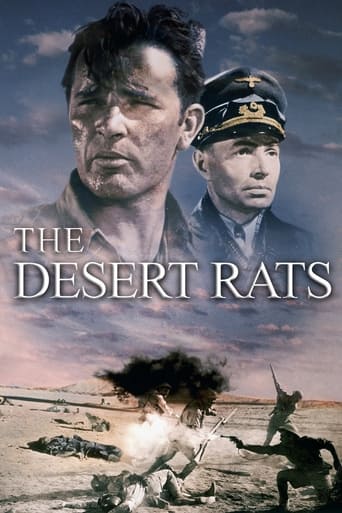

The Desert Rats is a fairly standard 1950's World War II picture. The film focuses on a theatre of war that doesn't get covered as much in media. The action takes place in North Africa, and primarily the siege of Tobruk. As the British and Anzac forces had to repel Rommel's forces, wave after wave over the course of eight months, using every trick in the book to make sure that the German forces were unable to reach the Suez canal.Robert Wise does a good job of shooting exciting action scenes that were better then a-lot of films at the time. The problem is this film is basically a ninety minute fire-fight. Which isn't a huge negative, what is, is the lack of characterisation or plot. I can't remember a single character from the film as they all blended together and became faces rather then characters.The film also lacked any real tension until the last twenty minutes when you could actually feel the exhaustion from the characters after battling for months on end. As a pure action film it does a good job of showing the toll war can have upon soldiers. It's just a shame that none of the characters had any sense of personality or individualism. Over-all this film makes for a decent watch on TCM on a Sunday afternoon, other then that it doesn't offer much. This is a rare case of a film that would be perfect for a remake.
... View MoreIt's 1941. Field Marshal Erwin von Rommel is pushing towards the Suez Canal. Allied forces are hold up in the port of Tobruk threatening his supply lines. Capt. Tammy MacRoberts (Richard Burton) is picked to lead a group of newly-arrived green Australian troupes. They struggle to hold on for two months and end up surviving for eight until relief.The accuracy is questionable to be generous. The story of the raid feels especially unreal. At least, they get captured. This works as an old-fashion war movie. There are bits of good action. Burton and cast are good. It is good action but a little slow in long stretches.
... View More*Spoiler/plot- The Desert Rats, 1953. A fictional account of a British officer in command of ANZAC Austrialian troops defending the North Africa city of Tobruk from Rommel's Afrika Korps in WW2.*Special Stars- Richard Burton, Robert Newton, James Mason, Torin Thacter, Robert Douglas, Charles Tingwell and Chips Rafferty. DIR: Robert Wise. DIR: Robert Wise.*Theme- Audacity in warfare can win battles.*Trivia/location/goofs- American film. Early film role for Richard Burton. James Mason played Rommel again in a 20th century Fox film two years before in 'Desert Fox'. One high British general officer staff member has an obvious American accent during a important briefing. The armor tanks in this film are really American due to the lack of historic panzers so soon after the war. Some German uniform items are clearly WW1 vintage.*Emotion- A good post ww2 film in which the Brits are patriotically but respectfully accounting their win over Das Afrika Korps. Satisfying and somewhat historical with very good casting.*Based On- Historic account of the Tobruk battle.
... View MoreThis is a very tight and compelling presentation of a heroic stand off. A classic story of so few against so many. While the movie is a good narrative,what is also captivating in this movie, is the study of different characteristics of Great Leadership. The various protagonists, Captain Tammy Roberts, the General , General Rommel and even the crusty old school teacher Tom Bartlett all display some of the characteristics of outstanding leadership. It also presents several dilemmas that leaders face and their varying responses to them.. ... Fascinating stuff! So much so,that this movie can actually be used as a 'case study' in Leadership Development programs ...
... View More